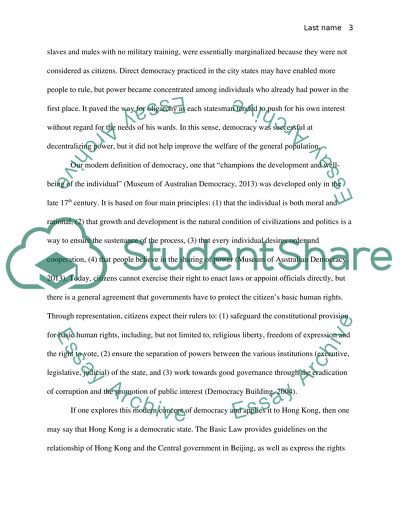Cite this document
(“'Democracy is when the people rule the country.' Critically assess Assignment”, n.d.)
'Democracy is when the people rule the country.' Critically assess Assignment. Retrieved from https://studentshare.org/sociology/1495306--democracy-is-when-the-people-rule-the-country
'Democracy is when the people rule the country.' Critically assess Assignment. Retrieved from https://studentshare.org/sociology/1495306--democracy-is-when-the-people-rule-the-country
('Democracy Is When the People Rule the country.' Critically Assess Assignment)
'Democracy Is When the People Rule the country.' Critically Assess Assignment. https://studentshare.org/sociology/1495306--democracy-is-when-the-people-rule-the-country.
'Democracy Is When the People Rule the country.' Critically Assess Assignment. https://studentshare.org/sociology/1495306--democracy-is-when-the-people-rule-the-country.
“'Democracy Is When the People Rule the country.' Critically Assess Assignment”, n.d. https://studentshare.org/sociology/1495306--democracy-is-when-the-people-rule-the-country.


